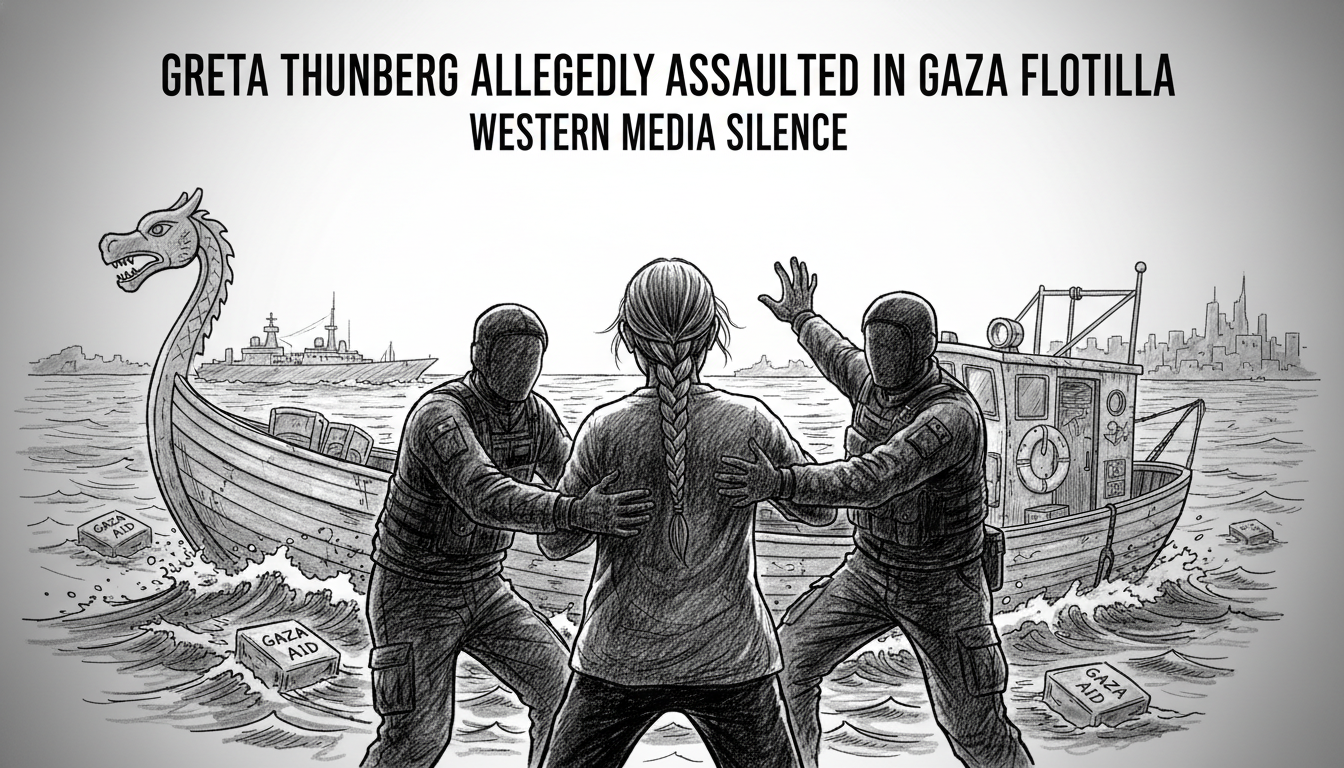Greta Thunberg Allegedly Assaulted in Gaza Flotilla Incident
Greta Thunberg was reportedly assaulted by Israeli forces while participating in a Gaza aid flotilla. The incident received little coverage in major Western media despite multiple witness accounts. This raises serious questions about protection for activists and the selective attention to human rights issues.

Greta Thunberg joined an international flotilla delivering humanitarian aid to Gaza in September. Israeli forces intercepted the vessels in the Mediterranean Sea.
Multiple witnesses and journalists on the flotilla described disturbing events. They said soldiers pulled Thunberg's hair, forced her to the ground, and made her kiss the Israeli flag while mocking her.
These accounts circulated widely on social media and independent international media outlets. Major Western news organizations largely ignored the incident.
What does this say about protection for ordinary Palestinians? They live under occupation year after year. If even an internationally recognized peace activist faces such treatment without consequences, what hope exists for others?
Thunberg has long advocated for justice across multiple causes. She connects climate action to moral responsibility and empathy. In recent years, she has also spoken out for Palestinian rights to life and freedom.
This incident represents more than a physical attack on one person. It symbolizes an assault on international solidarity itself.
When world powers look away, it reveals how little space exists for genuine human rights activism. This is especially true when activism challenges powerful nations or their allies.
The media silence surrounding this event demonstrates selective global conscience. Some stories get amplified while others get suppressed regardless of their importance.
Thunberg has risked her safety and reputation to defend forgotten people. She represents a new generation of peace activists who connect climate justice with human dignity.
History shows many Nobel Peace Prize winners faced opposition before recognition. Nelson Mandela endured imprisonment and Malala Yousafzai survived assassination attempts before receiving honors.
If the world's most famous environmental advocate isn't safe from violence, what does that mean for Palestinian children and families? This situation reflects broader questions about whose rights and safety matter globally.
We must ask what kind of world we're building. Is it one where truth and human rights apply selectively rather than universally?